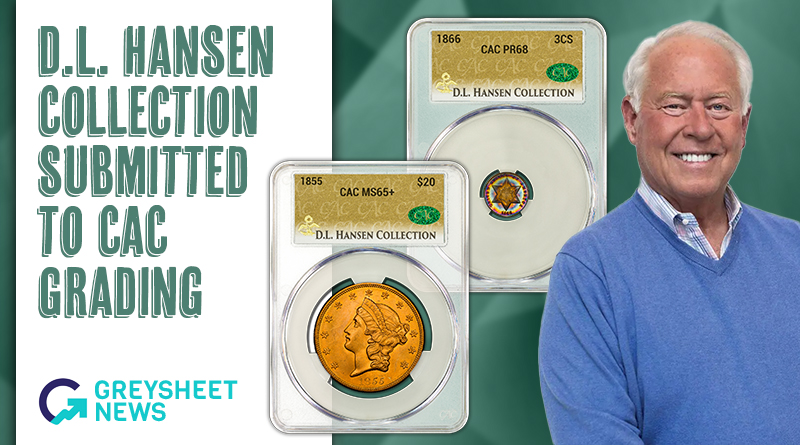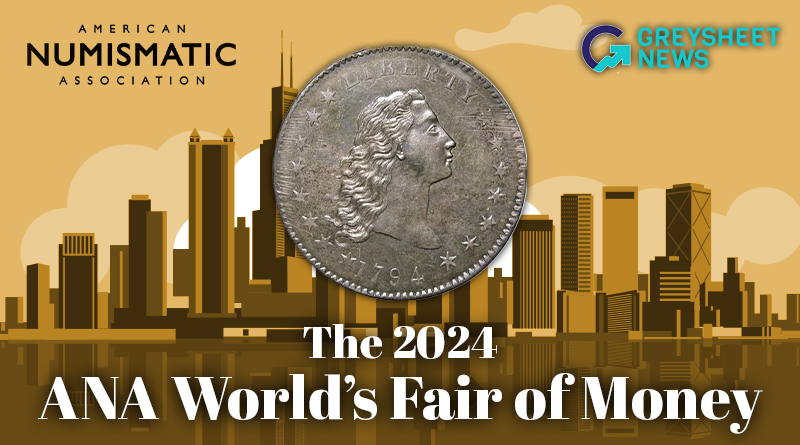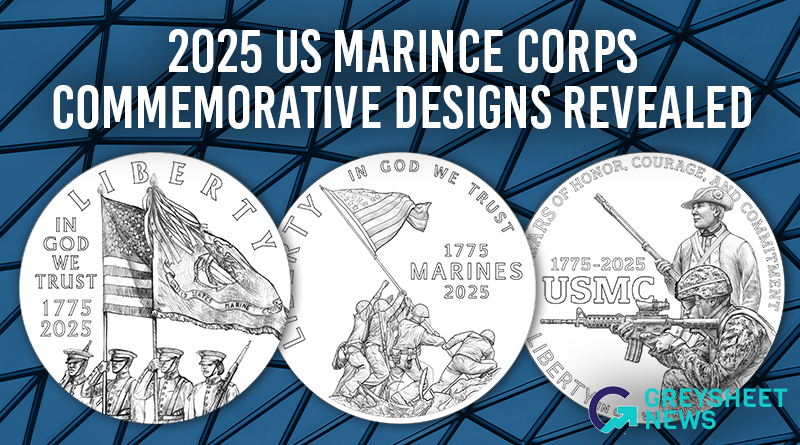Greysheet & CPG® PRICE GUIDE
- U.S. Coins /
- Dollars /
-
1876 Trade Dollar Values
About This Series
William Barber designed the Trade dollar, which portrays a seated Miss Liberty on the obverse and an eagle on the reverse. Often, circulated Trade dollars are found with various Asian merchant marks, which are colloquially referred to as ?chop marks? by many in the coin realm.
The most common Trade dollars are those from the mid 1870s. In 1879, the United States Mint began striking Trade dollars only in proof, and these issues are quite scarce, with the 1885 as the rarest with a mintage of just 5 pieces. While dealers and collectors should be wary of encountering forged examples of any coin, Trade dollars are especially notorious for being counterfeited. Raw specimens of any date and grade should be scrutinized carefully before purchase.
Catalog Detail
Legal Disclaimer
The prices listed in our database are intended to be used as an indication only. Users are strongly encouraged to seek multiple sources of pricing before making a final determination of value. CDN Publishing is not responsible for typographical or database-related errors. Your use of this site indicates full acceptance of these terms.

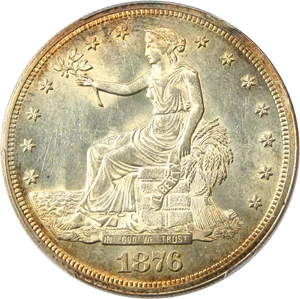





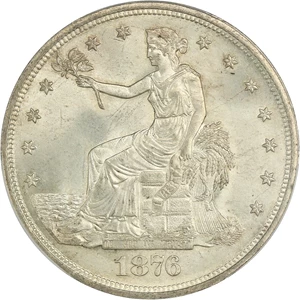
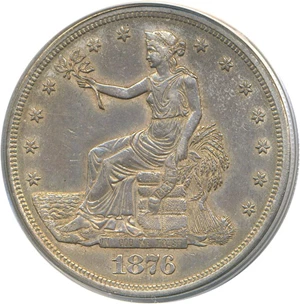
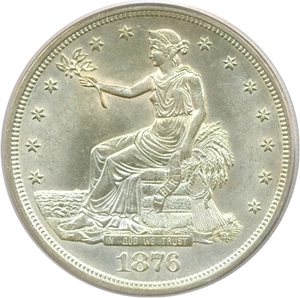
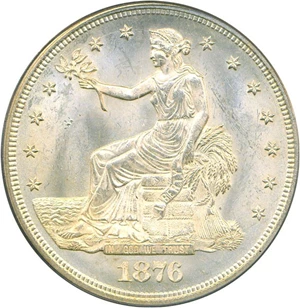
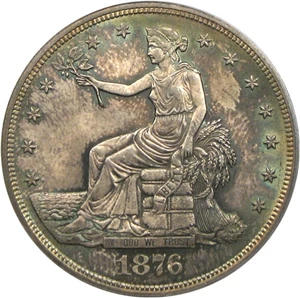
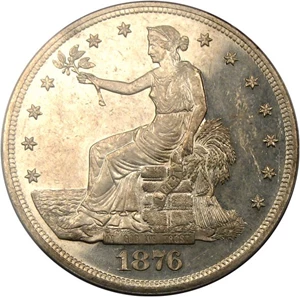
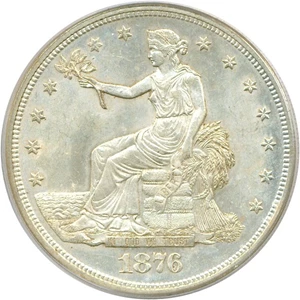
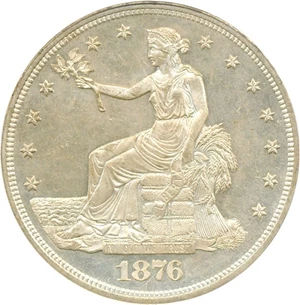
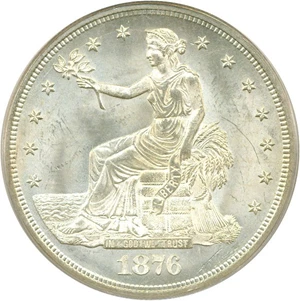
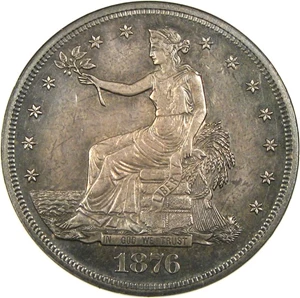
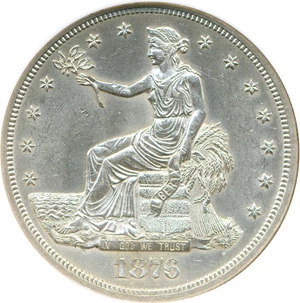
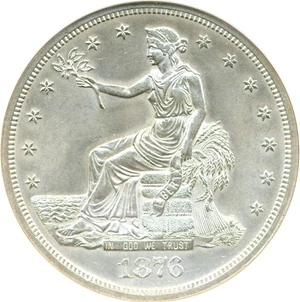
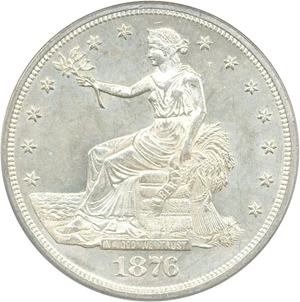
| Trade Dollars (1873–1878) | Value Range | Favorite | |||
|---|---|---|---|---|---|
| Trade Dollars (1873–1878) | Value Range | ||||
|
$65.00
-
$120,000
$65.00 - $120,000
|
||||
|
$775
-
$144,000
$775 - $144,000
|
||||
|
$205.00
-
$43,500
$205.00 - $43,500
|
||||
|
$65.00
-
$120,000
$65.00 - $120,000
|
||||
|
$625
-
$16,000
$625 - $16,000
|
||||
|
$875
-
$9,500
$875 - $9,500
|
||||
|
$260
-
$120,000
$260 - $120,000
|
||||
|
$260
-
$120,000
$260 - $120,000
|
||||
|
$260
-
$120,000
$260 - $120,000
|
||||
|
$325
-
$44,500
$325 - $44,500
|
||||
|
$550
-
$47,500
$550 - $47,500
|
||||
|
$925
-
$12,500
$925 - $12,500
|
||||
|
$925
-
$12,500
$925 - $12,500
|
||||
|
$1,000
-
$14,500
$1,000 - $14,500
|
||||
|
$1,000
-
$14,500
$1,000 - $14,500
|
||||
|
$65.00
-
$60,000
$65.00 - $60,000
|
||||
|
$130.00
-
$60,000
$130.00 - $60,000
|
||||
|
$130.00
-
$12,000
$130.00 - $12,000
|
||||
|
$130.00
-
$12,000
$130.00 - $12,000
|
||||
|
$130.00
-
$12,000
$130.00 - $12,000
|
||||
|
$135.00
-
$12,500
$135.00 - $12,500
|
||||
|
$180.00
-
$3,600
$180.00 - $3,600
|
||||
From the Greysheet Marketplace
Auction Ends: 9/17/2025
Buy Now: $393.13
Auction Ends: 9/17/2025
Auction Ends: 9/17/2025
Auction Ends: 9/22/2025
Auction Ends: 9/22/2025
Auction Ends: 9/17/2025
Auction Ends: 9/22/2025
Auction Ends: 10/2/2025
Auction Ends: 9/22/2025
Related Stories (powered by Greysheet News)
View all news
Greysheet Catalog Details
William Barber designed the Trade dollar, which portrays a seated Miss Liberty on the obverse and an eagle on the reverse. Often, circulated Trade dollars are found with various Asian merchant marks, which are colloquially referred to as ?chop marks? by many in the coin realm.
The most common Trade dollars are those from the mid 1870s. In 1879, the United States Mint began striking Trade dollars only in proof, and these issues are quite scarce, with the 1885 as the rarest with a mintage of just 5 pieces. While dealers and collectors should be wary of encountering forged examples of any coin, Trade dollars are especially notorious for being counterfeited. Raw specimens of any date and grade should be scrutinized carefully before purchase.
Catalog Detail
Legal Disclaimer
The prices listed in our database are intended to be used as an indication only. Users are strongly encouraged to seek multiple sources of pricing before making a final determination of value. CDN Publishing is not responsible for typographical or database-related errors. Your use of this site indicates full acceptance of these terms.





 Loading more ...
Loading more ...









